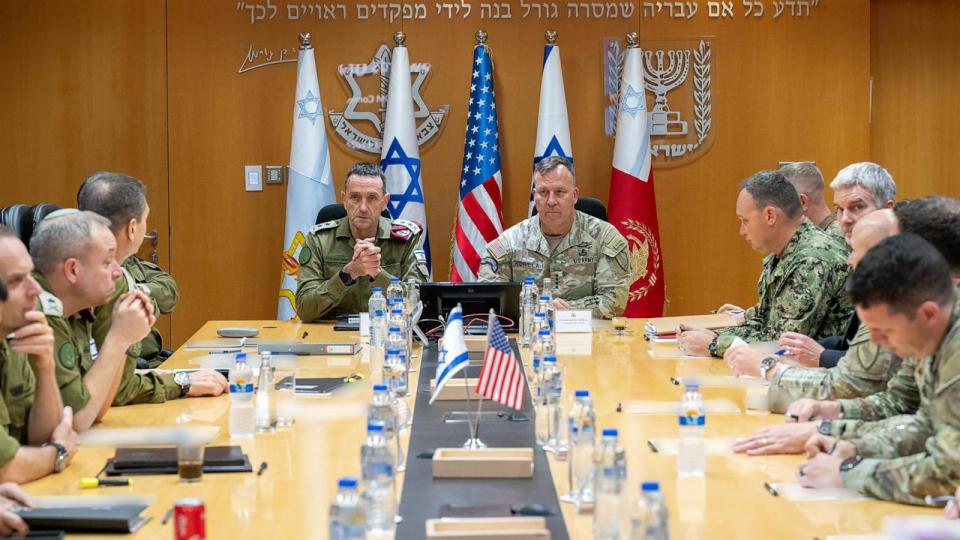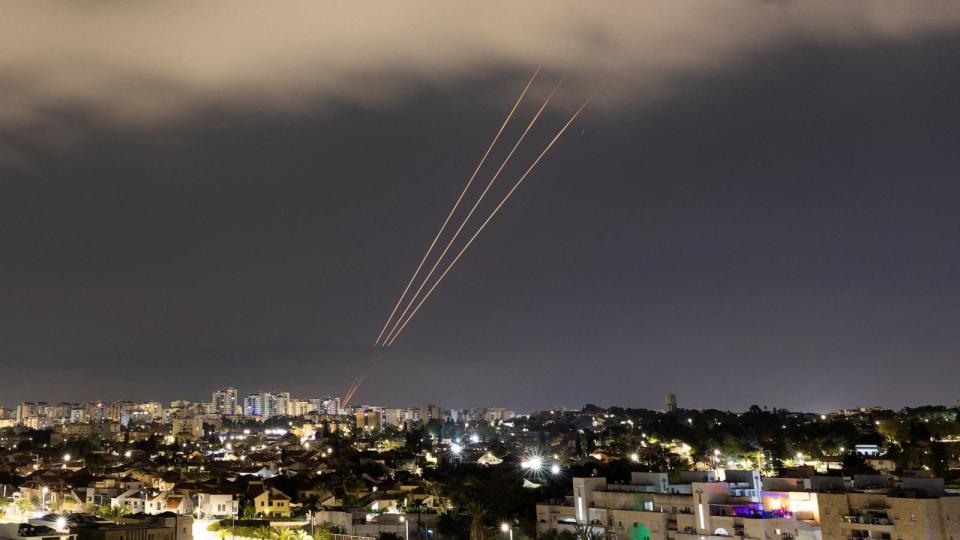US to Israel: If you strike back at Iran, you'll do it alone
As Israel on Monday weighed its response to Iran's stunning attacks this weekend, the U.S. is privately telling officials there: If Israel strikes back militarily, it will do so alone.
It's an unusual message for a close ally that's spent decades receiving more US military aid than any other country in the world and whose relationship with America is often described as "ironclad."
But after months of Israel acting on its own in Gaza — and facing tough criticism from the U.S. and other allies that its military operations have gone too far – the Biden administration made clear the U.S. wouldn't participate in offensive military operations against Iran, fearing a broader war in the Middle East.
MORE: Israel-Gaza live updates: Israeli war cabinet to reconvene Monday
"We believe Israel has freedom of action to protect itself and defend itself," a senior administration official told reporters shortly after Iran's attack ended. "That's a long-standing policy, and that remains."
When asked by a reporter if the U.S. would help Israel counter with offensive military operations, the official said no.
"We would not envision ourselves participating in such a thing," this person said.

MORE: Congressional party leaders reach 'consensus' on aid to Israel and Ukraine, Schumer says
According to a second U.S. official, that message was also delivered directly to Israel's top officials in a private phone call Sunday between Defense Secretary Lloyd Austin and Israeli Defense Minister Yoav Gallant.
In addition to expressing support for Israel's defense, the official said Austin made clear in a very "direct" manner that the U.S. was not planning to join a potential counteroffensive on Israel's behalf.
Iran's attack on Israel late Saturday had deeply rattled world leaders, including U.S. officials who initially thought the Islamic Republic had readied only a dozen or so ballistic missiles. One senior U.S. official described their hand "trembling" while taking notes in a meeting upon learning that U.S. intelligence believed more than 100 ballistic missiles being prepared for launch.

The attack was considered retaliation for a military strike on what Iran called its consulate in Damascus, Syria, widely believed to be Israel's doing.
In the end, U.S. officials estimate that Iran launched some 300 missiles and drones, including more than 100 ballistic missiles and 30 cruise missiles.
Two U.S. officials confirm to ABC News that about half of those missiles either failed to launch, failed in flight or crashed before reaching their targets in Israel.
Israeli's air defense systems were successful in defeating the majority of the remaining air threats, with U.S., U.K. and Jordanian forces coming to their aid.
According to U.S. Central Command, American forces in the region – including two U.S. Navy destroyers in the eastern Mediterranean Sea — shot down some 80 drones and up to six ballistic missiles. One missile was shot down near Erbil, Iraq, by U.S. forces who suspected it was headed toward Israel.

MORE: Video Iran attacks Israel with drones
The senior administration official told reporters afterward the defensive effort was a "spectacular" success, even if Iran's intent "clearly was to cause significant damage and deaths in Israel."
Israel's response wasn't immediately clear. Israeli Prime Minister Benjamin Netanyahu met with his war cabinet on Sunday, and top officials said a decision could be made as early as Monday.
President Joe Biden had already spoken privately with Netanyahu within hours of the attack. Biden later joined G7 leaders on Sunday in a statement expressing "full solidarity and support to Israel."
"I think coming together in such a very, very strong way under the umbrella of the United States Central Command, together with the British, together with the French and the regional players, sent a very, very clear message to Iran that you can't get away with it," said Israel's Lt. Col. Peter Lerner, a spokesperson for the Israel Defense Force.
That global support for Israel was a notable shift for Israel after months of criticism its destructive military operations against Hamas following the Oct. 7 attacks. Israel has defended the offensive operation as necessary to defend itself against future attacks.
U.S. officials said that they believe Iran's attack late Saturday was mostly a failure, and the goal now should be a carefully calibrated response with broad international support.
"I think Israel has to think through carefully what it does next," the senior administration official said.
ABC News' Martha Raddatz, Luis Martinez and Britt Clennett contributed to this report.
US to Israel: If you strike back at Iran, you'll do it alone originally appeared on abcnews.go.com

